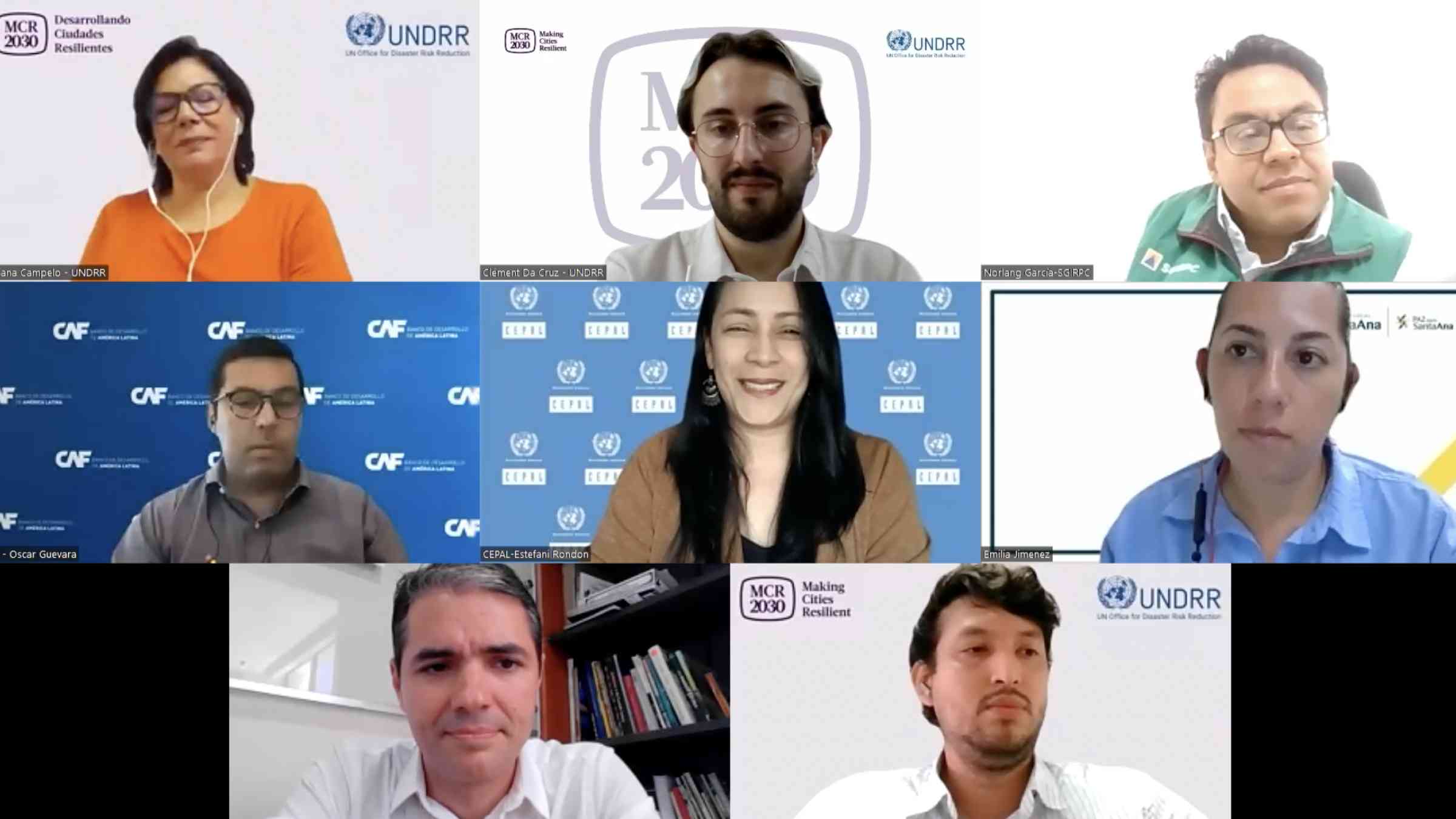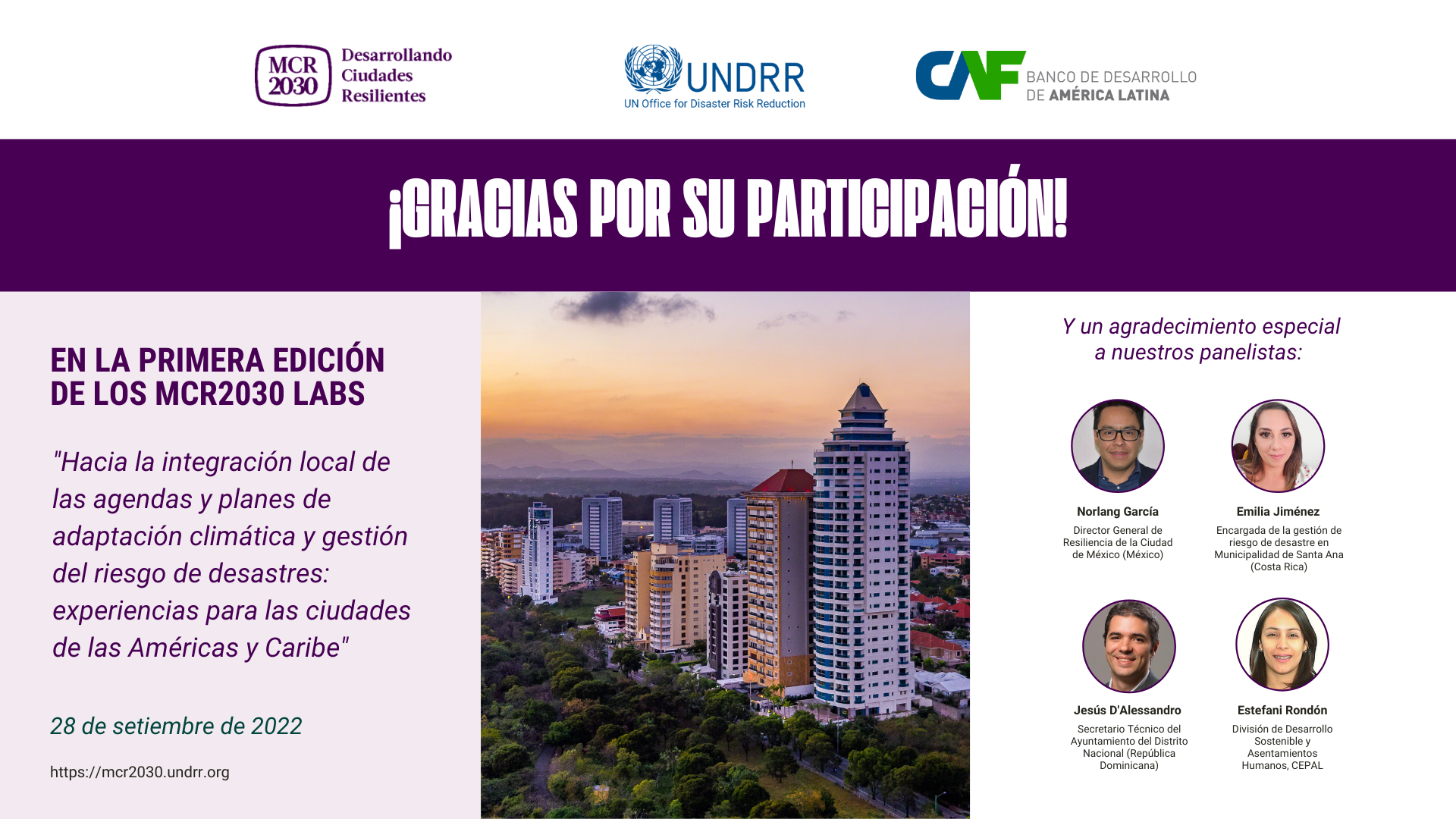MCR2030 Labs: experience-sharing on how to implement integrated actions for resilience and adaptation to climate change in the Americas and the Caribbean

On September 28th, the first edition of the MCR2030 Labs was held, a space created by the Americas and Caribbean regional office team to exchange knowledge and experiences to support cities in the region to deepen their understanding and strengthen their action towards disaster risk reduction and climate resilience.
Under the moderation of Adriana Campelo, Regional Coordinator of MCR2030 for the Americas and the Caribbean, this first edition sought to learn about the experiences of various local governments in integrating climate adaptation and disaster risk management actions in their government strategies and plans. It was attended by representatives of the Economic Commission for Latin America and the Caribbean (ECLAC) and the cities of Santa Ana (Costa Rica), Santo Domingo (Dominican Republic), and Mexico City (Mexico).
Oscar Guevara, Executive Director of CAF's Vice-Presidency for Sustainable Development, said that the institution is in the process of consolidating itself as the Green Bank of Latin America and thereby coordinating efforts with countries in the region to achieve the goals established in the 2030 Agenda and the Climate Agenda, as well as in the Sendai Framework for Disaster Risk Reduction 2015-2030. For this reason, he added, it is important to work on integrated agendas that allow disaster risk and climate risk to be seen as a joint agenda to support local governments in the region.
Estefani Rondón, Research Assistant of ECLAC's Sustainable Development and Human Settlements Division, spoke about the institution's experience in mapping climate risks in the region and the work being done to identify opportunities to improve urban policy and environmental quality in order to begin the transition to a low-carbon and resilient economy. She also presented the recent ECLAC publications related to the analysis of the Panorama of Climate Action Plans and the tools for their implementation, as well as the proposed guidelines based on the experience of the cities of Santo Domingo and Belize.
Jesús D'Alessandro, Technical Secretary of the City Council of the National District of the Dominican Republic, highlighted the municipality's efforts to adopt various planning instruments to achieve the resilience of the city, including the National Development Strategy 2030, which was adopted as a result of a participatory process involving various representatives of the government, civil society, experts consultants and international organizations.
Norlang García, Mexico City's General Director of Resilience, mentioned that in recent years, various tools have been developed to map and analyze the context of hazards and risks to which the city is exposed. The results materialized in the Local Climate Action Strategy (ELAC) and the Climate Action Program (PACC) of Mexico City, which include the city's short-term adaptation strategy. On the other hand, he added, the Risk Atlas has helped the city to adopt better public policies for adaptation and reduction, informing about risks based on evidence.
Finally, Emilia Jiménez, head of disaster risk management in the Municipality of Santa Ana, shared the results of the activities carried out by the municipality, together with various officials and the population, in order to integrate risk management in her town. In particular, he emphasized the importance of the public-private alliances that have been formed with different agents of the business sector in order to work in articulations and cooperation to strengthen the resilience of the city.
The event concluded with a round of Q&A, highlighting the importance of both carrying out a participatory process that involves citizens and entering into partnerships with both the private sector and international institutions to strengthen the technical and financial capacities of local governments.


